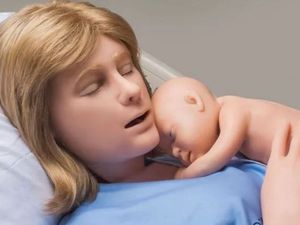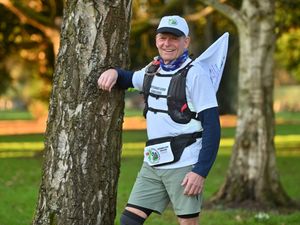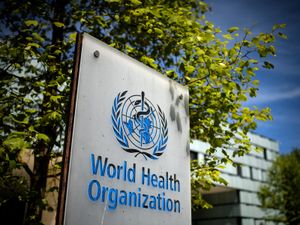Paramedics to train with £69,000 'Victoria' childbirth dummies
Paramedics in the West Midlands will be able to use £69,000 childbirth dummies to train for maternity care.

West Midlands Ambulance Service has bought five of the 'Victoria' simulator mannequins using funding from Health Education England.
Parents left devastated by the Shropshire maternity scandal have also been consulted as WMAS looks to improve.
The dummies were unveiled at the trust's first ever Maternity Roadshow.
Unlike other maternity mannequins, these simulators are the only ones on the market that can birth a simulated baby by itself and integrates with the Trust’s Zoll Series monitor/defibrillator, which allows real-time monitoring of blood pressure, blood oxygen levels, respiratory rate and heart rate of the mother.
'Victoria' provides ambulance staff with true-to-life clinical experiences and the most realistic scenarios possible when it comes to maternity patients.
The roadshow, at the WMAS Sandwell Hub, is part of a Maternity Month being hosted by the trust in October, and includes a range of continuous practice development (CPD) activities aimed at improving the knowledge and confidence of ambulance clinicians when providing pre-hospital maternity care.
As well as a simulation station where there will be live demonstrations and a chance to try out the new equipment, there will be open workshops and talks from guest speakers from a wide range of professions including neonatologists, obstetricians, midwives, and pre-hospital doctors.
WMAS maternity lead Steph Henry said: “The mannequins are incredible pieces of equipment that will undoubtedly help improve the confidence and competency of our staff when attending obstetric emergencies.
“We have been very privileged to have secured talks from a number of specialists for our roadshow and I hope all of the staff who attend will take a lot from it and give them more confidence when providing pre-hospital maternity care.”
As part of its work, the trust has been consulting with Rhiannon Davies and Richard Stanton, whose newborn baby Kate Stanton-Davies died in March 2009.
Changes have been made, WMAS has said, including the introduction of "maternity champions" on each of its 14 hubs, boosting the quality and number of maternity training sessions available and ambulance clinicians being given the opportunity to shadow shifts in maternity units to gain first-hand experience.
The trust has also introduced "cuddle pockets" for the safe transportation of miscarried babies, as well as trans-warmer mattresses being introduced on ambulances, with the aim of reducing the number of babies born before arrival at hospital developing hypothermia.
Ms Davies and Mr Stanton said: “Following our catastrophic experience in 2009 and the death of our daughter Kate, we struggled to have the many questions we had relating to her care answered. It wasn’t until after Kate’s inquest in 2012, when the failings were laid bare, that WMAS Chief Executive, Anthony Marsh, got in touch.
“Although WMAS’ actions were in no way contributory to Kate’s avoidable death, he was genuinely appalled at what had befallen us as a family and wanted to learn all lessons he possibly could to ensure no other family went what we went through.
“Mr Marsh has continued to listen to us, to engage with us, to take our ideas forward and advance the care his paramedics are able to offer. We are proud of each of the changes we have influenced on behalf of Kate. And we are equally proud of the entire WMAS family for being committed to advancing their learning and for the continuous improvements they just keep on making.
“It is our privilege to be invited to continue to support the Mr Marsh and all WMAS colleagues as they lead the country in the training of ambulance staff in maternity care.”





